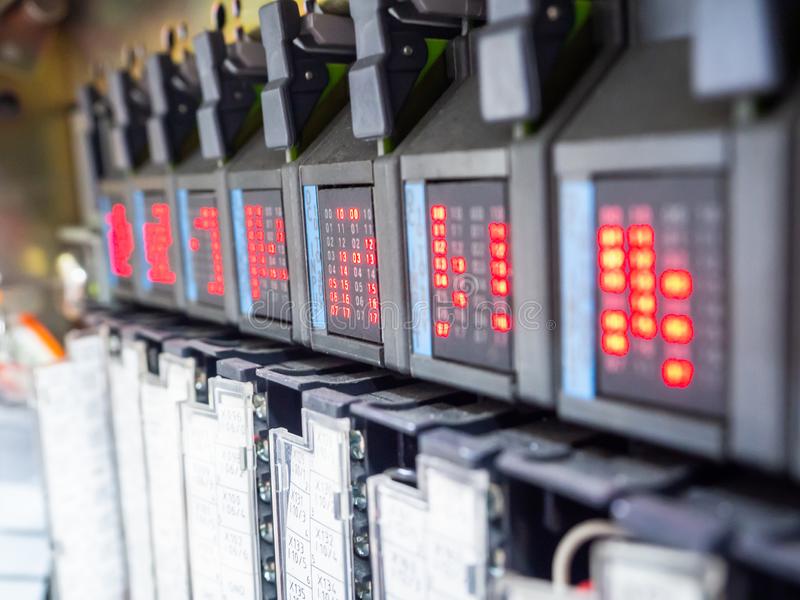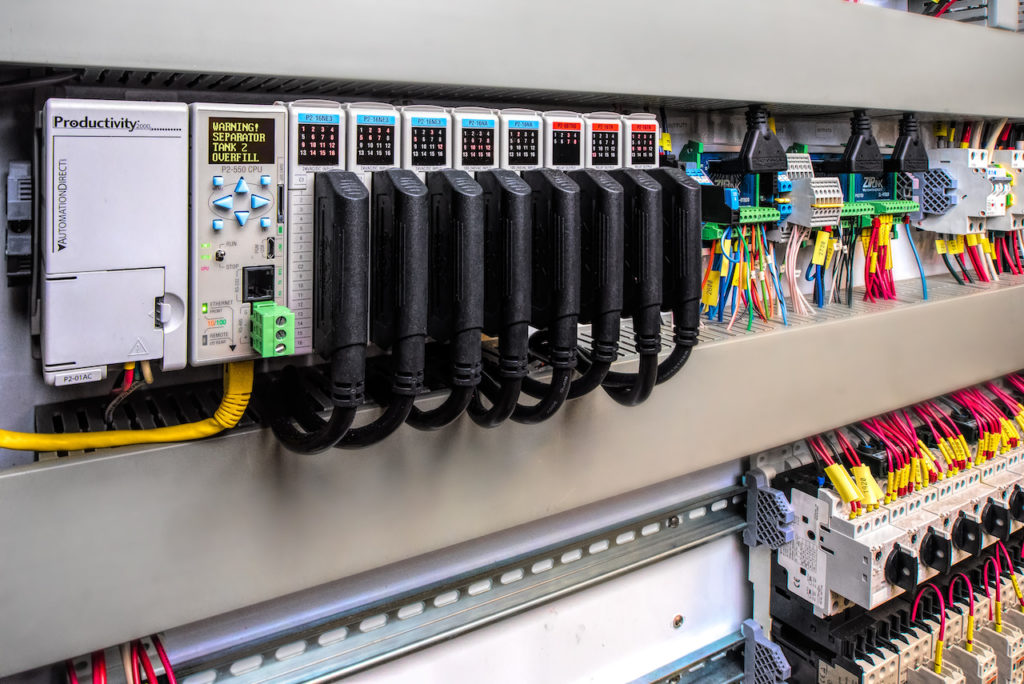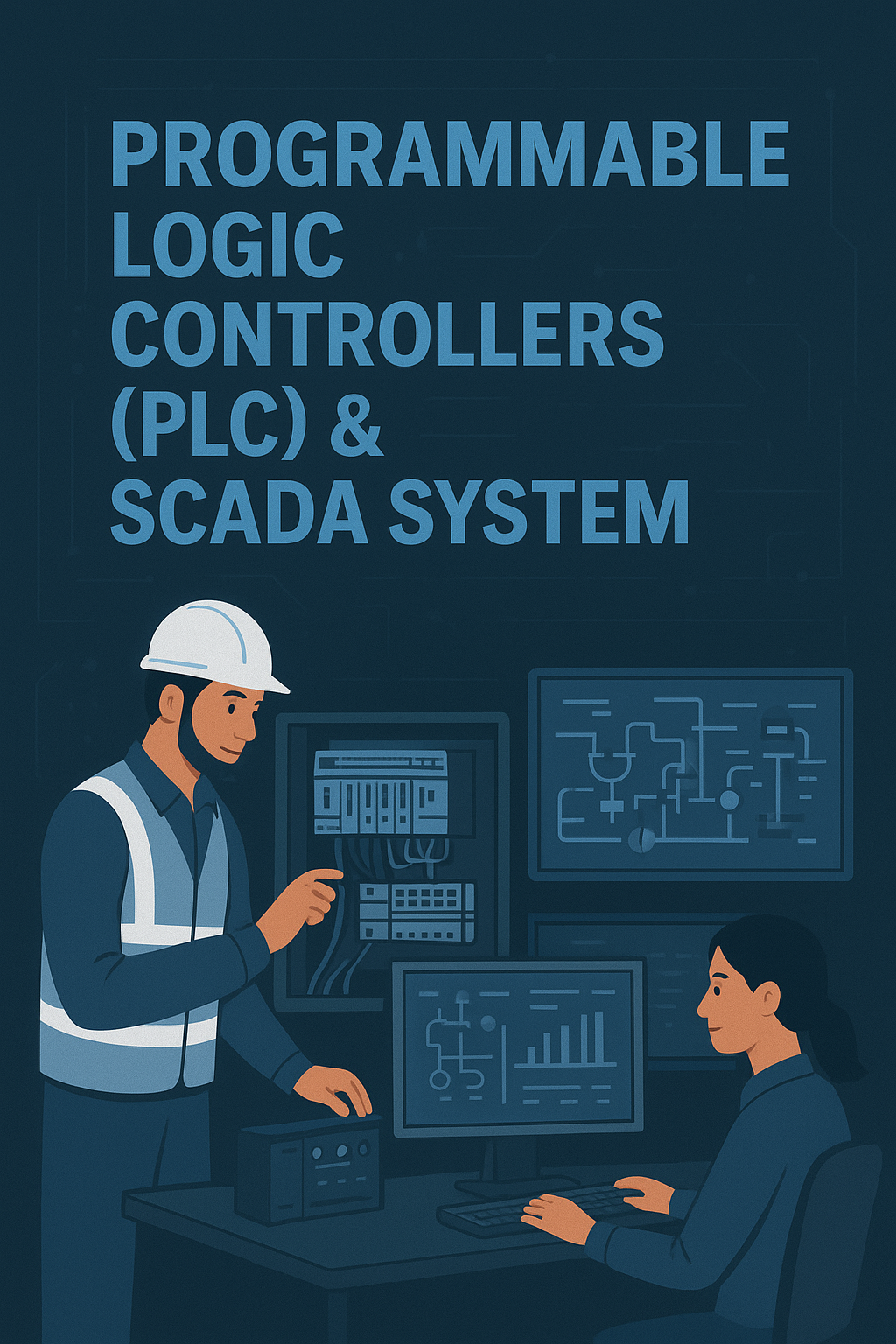

Upon the successful completion of this course, participants will be able to:-
This interactive Training will be highly interactive, with opportunities to advance your opinions and ideas and will include;
|
Overview of Programmable Logic Controllers Programmable Logic Controllers ● Parts of a PLC ● Principles of Operation ● Modifying the Operation ● PLC versus Computers ● PLC Size and Application ● PLC Hardware Components |
|
Overview of SCADA Systems SCADA Systems ● Remote Terminal Units ● PLCs used as RTUs ● The Master Station ● Communication Architectures ● Communication Philosophies ● Basic Standards: RS-232 and RS-485 ● SCADA Protocols ● The Open Systems Interconnection Model |
|
Overview of PLC Programming Processor Memory Organization ● Program Scan ● PLC Programming Languages ● Relay-Type Instructions ● Instruction Addressing ● Branch Instructions ● Internal Relay Instructions ● Programming EXAMINE IF CLOSED and EXAMINE IF OPEN Instructions ● Entering the Ladder Diagram ● Modes of Operation |
|
PLC Digital Bit Functions and Applications Introduction ● Bit Patterns in a Register ● Changing a Register Bit Status ● Shift Register Functions ● Shift Register Applications |
|
Advanced Control with PLCs The Concept of Reusable Logic ● Examples, and Alarm Handling ● Functions ● Blocks |
|
PLC Sequencer Functions Introduction ● Electromechanical Sequencing ● The Basic PLC Sequencer Function ● A Basic PLC Sequencer Application with Timing ● Other PLC Sequencer Functions |
|
PID Control The Importance of Timing and Scan Time ● When PID is not always Appropriate, ● PID applications |
|
Practical Session Programming Examples ● Practical Programs Implementation |
|
Analog PLC Operation Introduction ● Types of PLC Analog Modules and Systems ● PLC Analog Signal Processing ● BCD or Multibit Data Processing |
|
Practical Session Programming Examples ● Practical Programs Implementation |
|
Open SCADA Protocols Interoperability and Open Standards ● Development of Standards ● Interoperability and Open Standard ● System Topology ● Background and Development |
|
Intelligent Electronic Devices (IEDs) Definitions ● Functions |
|
Ethernet & TCP/IP Networks IEEE 802.3 CSMA/CD (‘Ethernet’) ● Physical Layer ● Signaling Methods ● Medium Access Control ● Frame Transmission ● Frame Reception ● Collisions ● MAC Frame Format ● Difference between 802.3 and Ethernet ● Reducing Collisions ● Ethernet Design Rules ● TCP/IP |
|
Fieldbus & SCADA Communications Systems Introduction ● Profibus ● Foundation Fieldbus |
|
Practical Session Introducing Print Out for Actual SCADA Systems Design & Displays |
|
Wrap-UP & General Discussion |
CDGA attendance certificate will be issued to all attendees completing minimum of 80% of the total course duration.
| Code | Date | Venue | Fees | Register |
|---|---|---|---|---|
| IE132-02 | 05-04-2026 | Amman | USD 5450 | |
| IE132-03 | 13-09-2026 | Jeddah | USD 5450 | |
| IE132-04 | 11-10-2026 | Dubai | USD 5450 |

Industrial data communication is characterized by its operating environment. Electromagnetic interference (EMI), long distances and physical barriers set industrial communications apart from typical b ...

SCADA has traditionally meant a window into the process of a plant and/or a method of gathering of data from devices in the field. Today the focus is on integrating this process data into the actual b ...
Providing services with a high quality that are satisfying the requirements
Appling the specifications and legalizations to ensure the quality of service.
Best utilization of resources for continually improving the business activities.
CDGA keen to selects highly technical instructors based on professional field experience
Since CDGA was established, it considered a training partner for world class oil & gas institution
3012, Block 3, 30 Euro Business Park, Little Island, Co. Cork, T45 V220, Ireland
Mon to Fri 09:00 AM to 06:00 PM
Contact Us anytime!
Request Info